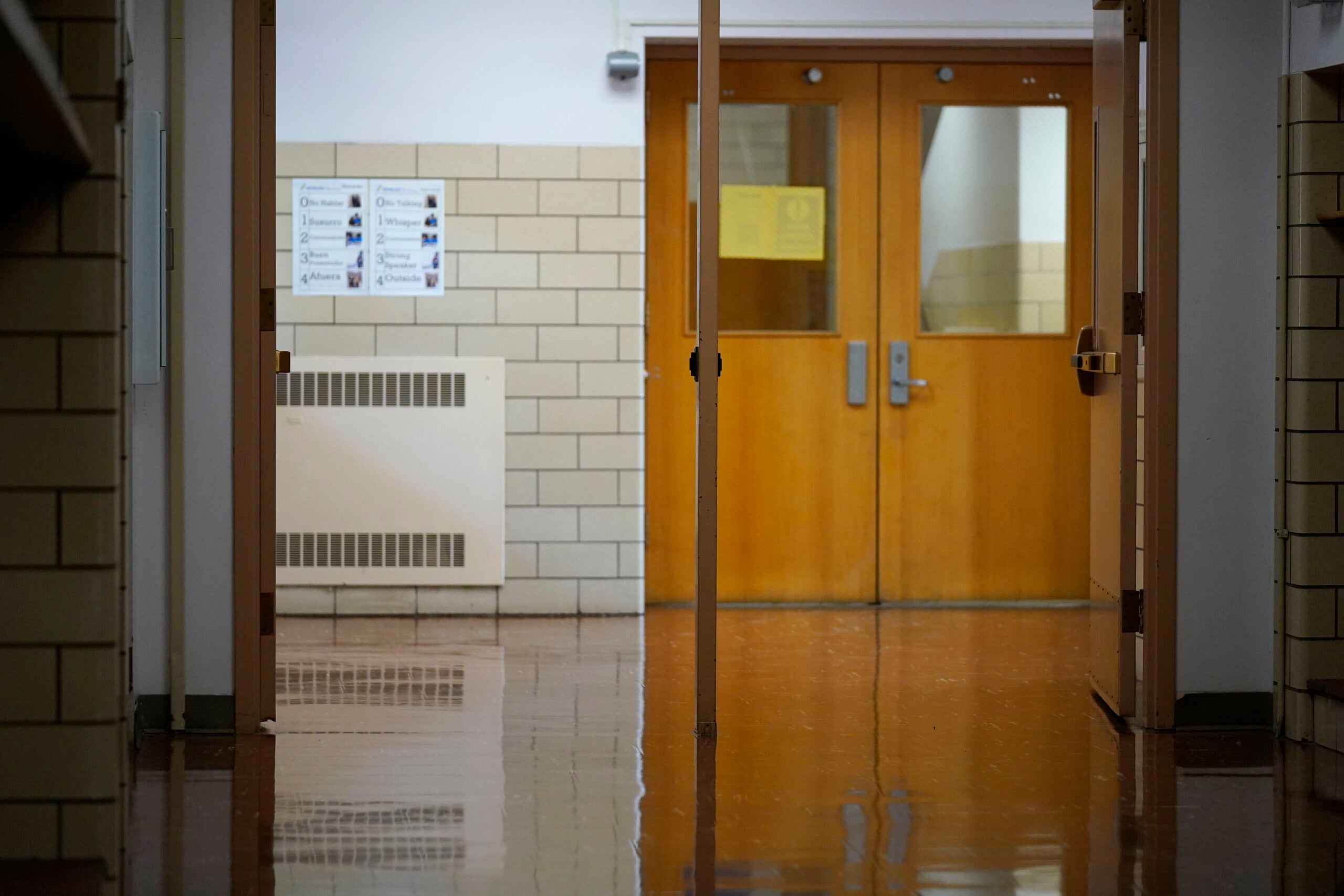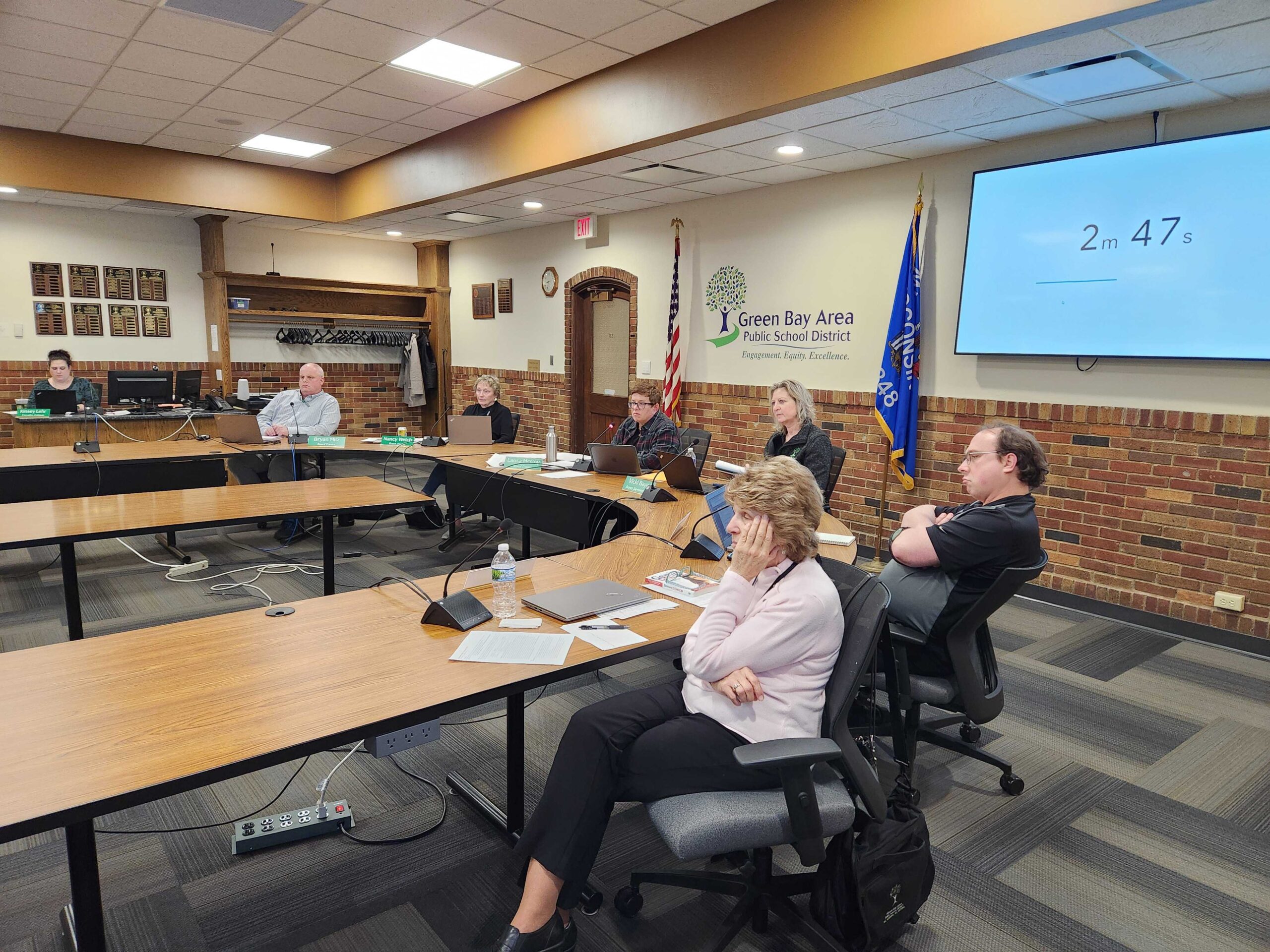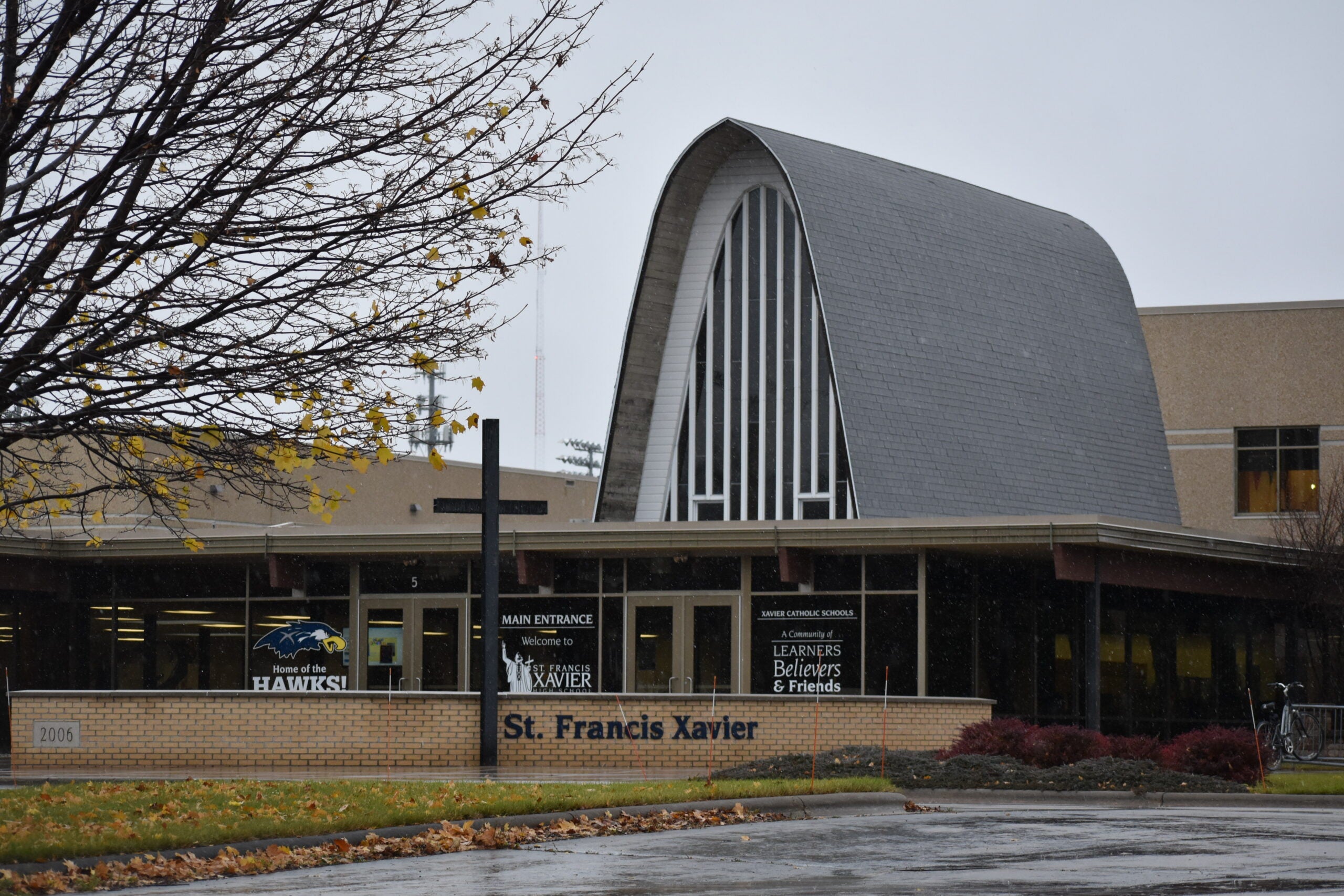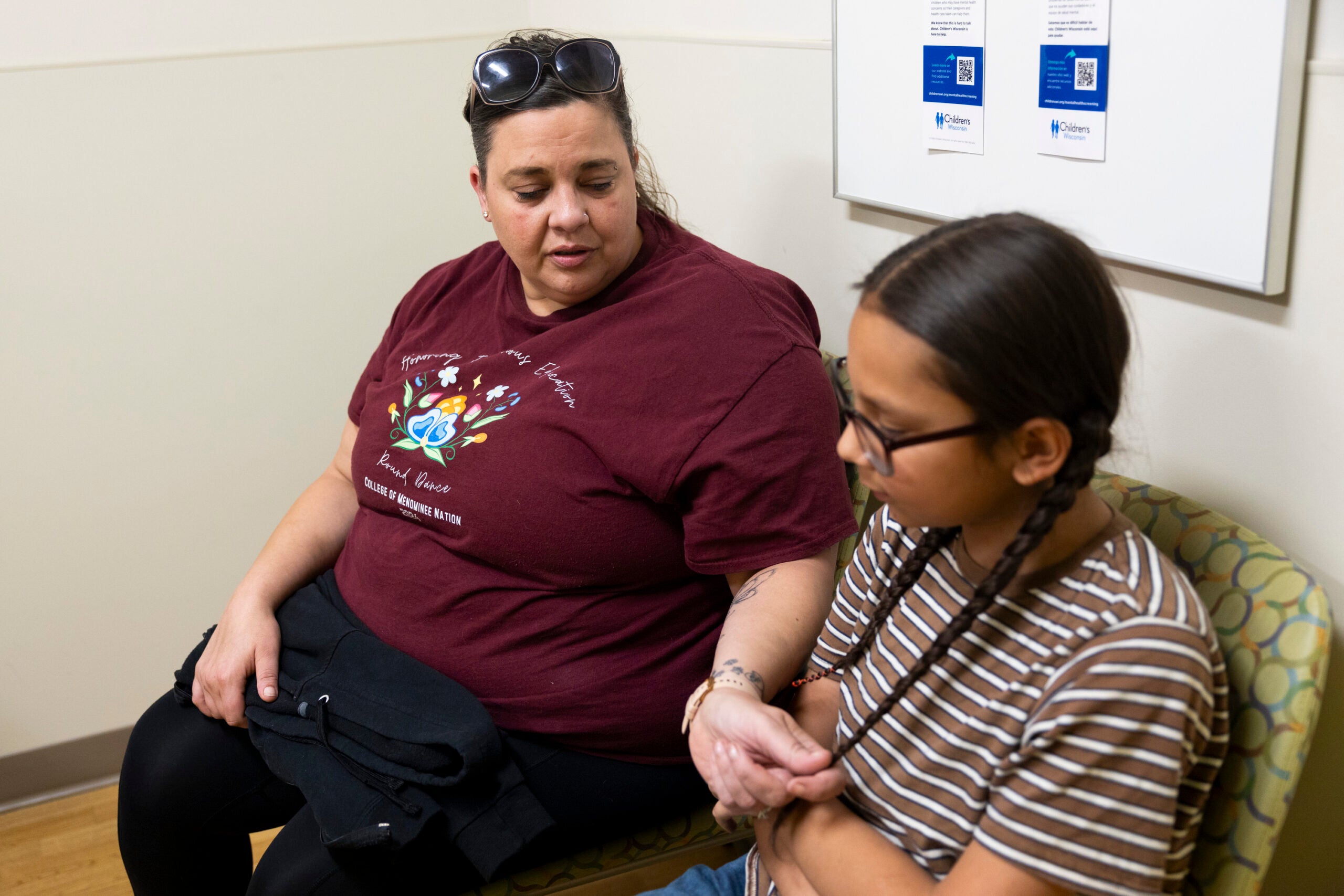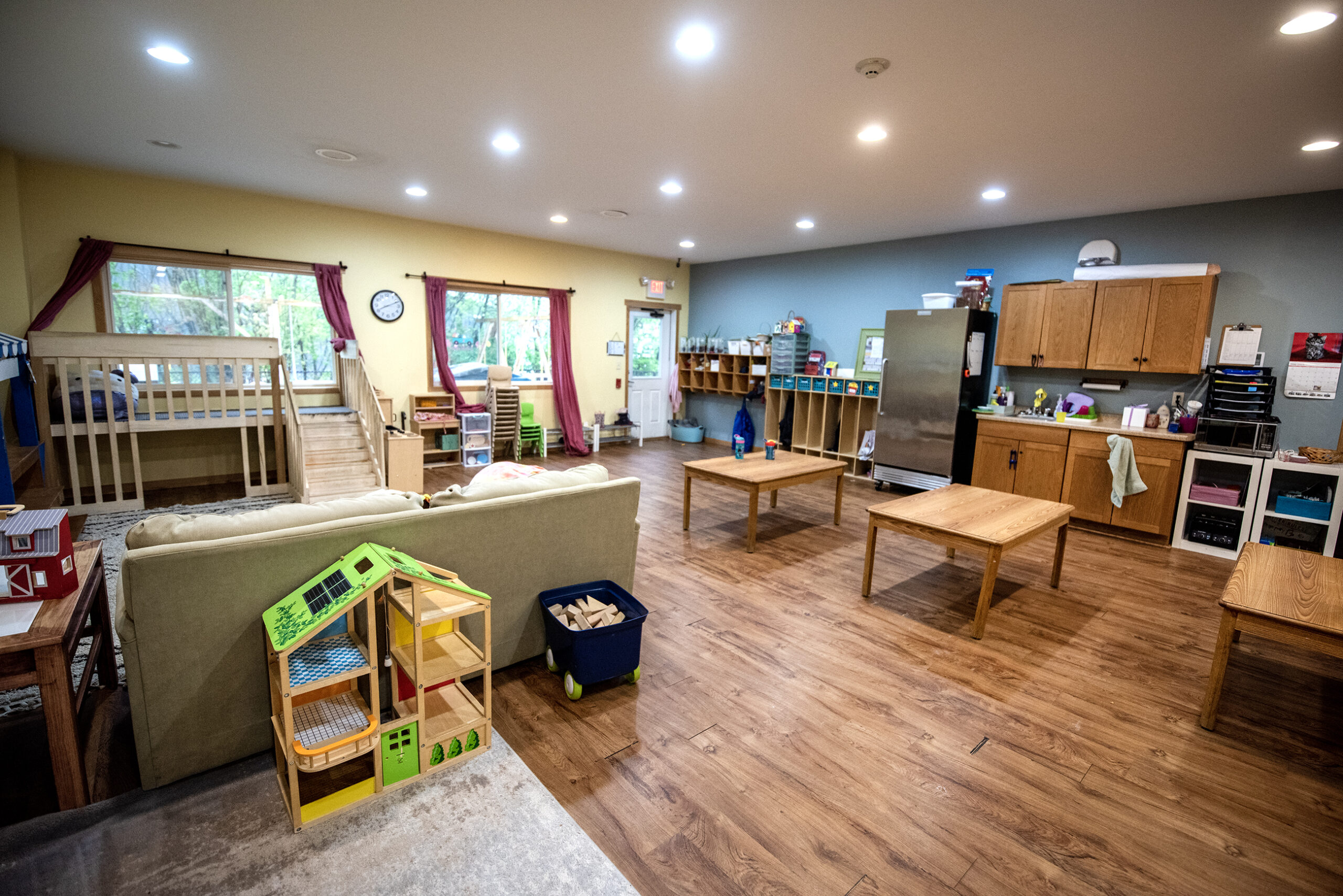Two Republican senators are proposing legislation that would require schools offering human growth and development courses to include childhood sexual abuse prevention strategies.
Wisconsin Sens. Andre Jacque, R- DePere, and Rick Gundrum, R- Slinger, are looking for co-sponsors for a bill colloquially known as Erin’s Law. If passed, Wisconsin would join 38 other states who have adopted the legislation named for Erin Merryn, a survivor of childhood sexual abuse.
Jacque said the aim of the legislation is to empower child victims to seek help.
Stay informed on the latest news
Sign up for WPR’s email newsletter.
“We should hopefully provide a safe environment for students to become aware when they are being exploited and abused and that there’s the ability to come forward to somebody that they trust,” Jacque said.
In 2021, the Wisconsin Department of Children and Families reported 3.4 per 1,000 children in Wisconsin were victims of maltreatment, with sexual abuse is the second most common form. Most victims of child sexual abuse are girls 12 or older.
The law would require school districts with human growth and development curricula to teach students, parents and school personnel the warning signs of childhood sex abuse and how to speak up if a child is being abused.
In 2018, the CDC reported that 97.3 percent of secondary schools in Wisconsin required students to take at least one health education course. Curriculum recommendations for the courses include teaching students how to “recognize, rebuff, and report” unwanted or inappropriate physical or sexual behavior. The lessons also teach students where to go for help if they have been victimized.
Erin’s Law would upgrade those recommendations to requirements with an emphasis on childhood sexual abuse prevention education.
“There’s certainly difficulties in terms of people coming forward. We’re trying to find ways to let people know that they’re not alone,” Jacque said.
Merryn, the legislation’s namesake, is an advocate, author and speaker who travels the country advocating for Erin’s Law to be passed in every state. She has said ending childhood sexual abuse is her life’s purpose.
Wisconsin is among 11 states considering adopting the legislation. Thirty-eight states that have made it law.
According to the Erin’s Law website, children in Maryland, Oregon and South Carolina confided in adults about their own abuse after receiving personal body safety training in school, part of what Erin’s Law requires.
In Ohio, it did not get passed without a fight. The Center For Christian Virtue disagreed with parts of the law, including that preventative education could start before middle school. After being stalled by opposition groups, Erin’s Law passed in Ohio in December 2022 becoming the latest state to do so.
According to the Centers for Disease Control and Prevention, 91 percent of children sexual assault survivors know their abuser.
Carmen Pitre is the president and CEO of Sojourner Family Peace Center, a nonprofit providing domestic violence prevention in the state. Pitre said children have a hard time reporting abusers they know, especially family members or family friends.
“The person who’s hurting you will sometimes use that to manipulate the child, use their affection, their love, their relationship to convince their child that what’s happening is normal and that they should keep it secret,” Pitre said.
Petrie said neither she nor Sojourner Family Peace Center have an official stance on the legislation. In general, she thinks education is one strategy to prevent child sexual abuse and help victims come forward. But it’s not the cure-all.
“Reporting is just one piece,” Petrie said. “I think we need to look at what happens when a person comes forward. Are they believed? Are they demonized? Are they blamed for what’s happening?”
Child victims who do come forward often report their abuse to educators. Petri said this is why it’s important school personnel be trained on how to notice and report child sexual abuse.
“I kind of think of reporting as a doorway. It’s about opening a door for people who are being hurt to walk through towards relief and healing and safety and security,” Petrie said.
In the 2021 report, only 8.5 percent of victims reported abuse or neglect to a parent.
Joyce Felker is the executive director of the Parenting Network, a Milwaukee organization focused on preventing child abuse and strengthening families. While Felker is unfamiliar with Erin’s Law, she supports preventative education and stresses the role parents play in teaching their children about boundaries.
Felker said adults need to let children know: “Your body is your own and nobody can touch you in a way that makes you feel uncomfortable. We also do not keep secrets about our body in our family. We tell mom or dad or a trusted adult.”
Erin’s law has passed in a majority of Wisconsin’s neighboring states including Minnesota, Illinois and Michigan.
“It’s not reactive; it’s hopefully preventative in terms of giving students the knowledge before they’re put in certain situations,” Jacque said.
Wisconsin Public Radio, © Copyright 2025, Board of Regents of the University of Wisconsin System and Wisconsin Educational Communications Board.
